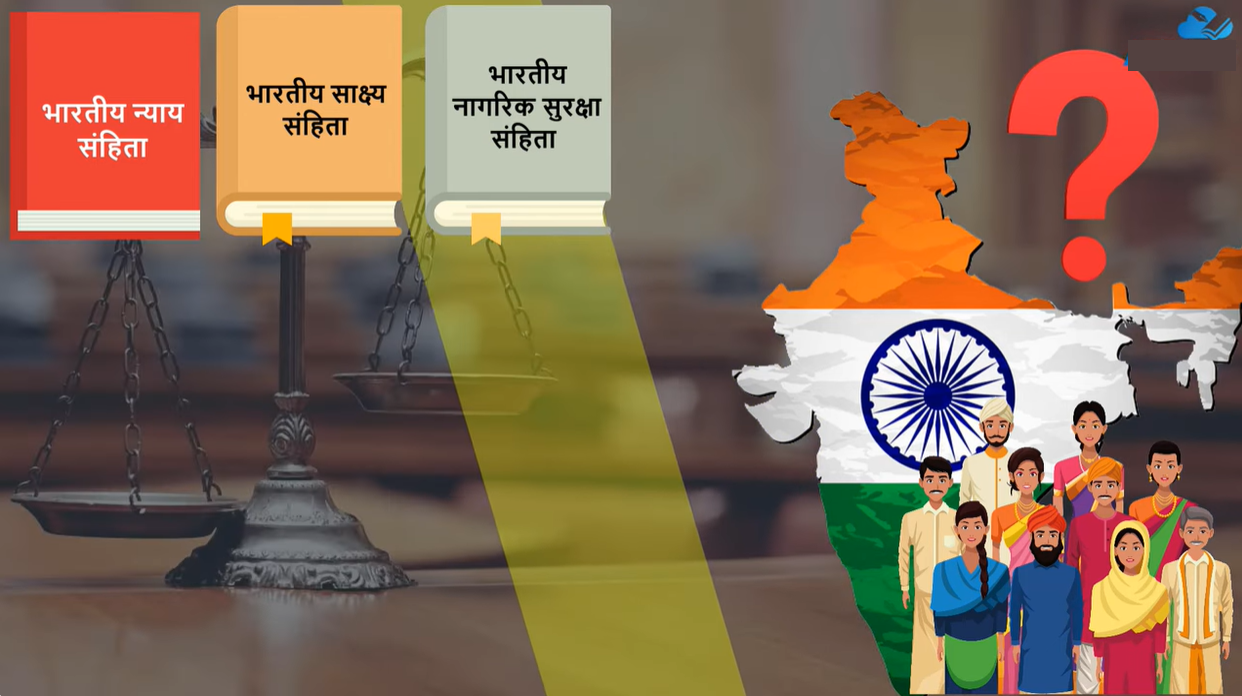भारतीय नागरिक सुरक्षा संहिता, 2023 : The Indian Civil Defence Code 2023
The Indian Civil Defence Code 2023 : भारतीय नागरिक सुरक्षा संहिता, 2023 का जिक्र करते हुए, यह संहिता भारत में नागरिकों की सुरक्षा और संरक्षण के लिए एक महत्वपूर्ण कदम है। इस संहिता का मुख्य उद्देश्य भारतीय नागरिकों की सुरक्षा, सुरक्षितता और उनके अधिकारों की रक्षा करना है।
भारतीय संविधान के अनुसार, नागरिकों को उनकी सुरक्षा और सुरक्षितता की पूरी रक्षा प्रदान करनी चाहिए। इसी धारा में भारतीय नागरिक सुरक्षा संहिता, 2023 बनाई गई है जिसमें नागरिकों के लिए विभिन्न प्रावधान होते हैं जो उनकी सुरक्षा को सुनिश्चित करने के लिए हैं।
इस संहिता में शामिल प्रमुख विषय शामिल हो सकते हैं:
- सुरक्षा के अधिकार: नागरिकों को उनके निजी और सार्वजनिक जीवन की सुरक्षा के अधिकार की गारंटी देना।
- अपराध और दण्ड: अपराधों के खिलाफ कठोर कार्रवाई और सुरक्षा एजेंसियों की सुनिश्चित करना।
- सुरक्षा एजेंसियों की शक्तियां: विभिन्न सुरक्षा एजेंसियों को उनकी कार्यक्षमता बढ़ाने के लिए प्रावधान करना।
- विशेष स्थिति में सुरक्षा: विशेष आपत्ति, जैसे कि आतंकवादी हमले या प्राकृतिक आपात्तियों के मामलों में नागरिकों की सुरक्षा के लिए निर्देश देना।
यह संहिता भारतीय समाज में सुरक्षा और न्याय के संरचनात्मक विकास को सुनिश्चित करने में महत्वपूर्ण भूमिका निभाती है और नागरिकों को उनके अधिकारों का सम्मान और सुरक्षा देने में मदद करती है।
Since specific details about the “Bharatiya Nagarik Suraksha Sanhita, 2023” are not readily available, I can offer a general perspective on what such legislation might encompass based on typical objectives of civil security laws in India.
- Protection of Civil Rights: Ensuring the protection of fundamental rights and freedoms guaranteed to Indian citizens under the Constitution, particularly in contexts involving security measures and law enforcement.
- Public Safety and Security: Implementing measures to enhance public safety, prevent crime, and respond effectively to security threats. This includes provisions for the deployment and operation of security agencies and personnel.
- Emergency Preparedness: Establishing protocols and frameworks for managing emergencies, whether they be natural disasters, terrorist incidents, or other crises that threaten public safety.
- Legal Framework and Enforcement: Defining the legal framework within which security agencies operate, including their powers, responsibilities, and accountability mechanisms to safeguard civil liberties while maintaining effective security measures.
- Community Engagement and Awareness: Promoting community involvement in maintaining public safety and fostering awareness about security measures among citizens.
Legislation such as the “Bharatiya Nagarik Suraksha Sanhita” would likely aim to consolidate and strengthen these aspects, providing a comprehensive legal basis for ensuring the security and well-being of Indian citizens. It would also reflect evolving challenges and threats faced by society, incorporating modern strategies and technologies to address them effectively.
For more detailed and specific information, it would be advisable to consult official government sources or legal texts pertaining to civil security laws in India, as well as any recent developments in legislation related to citizen security.

